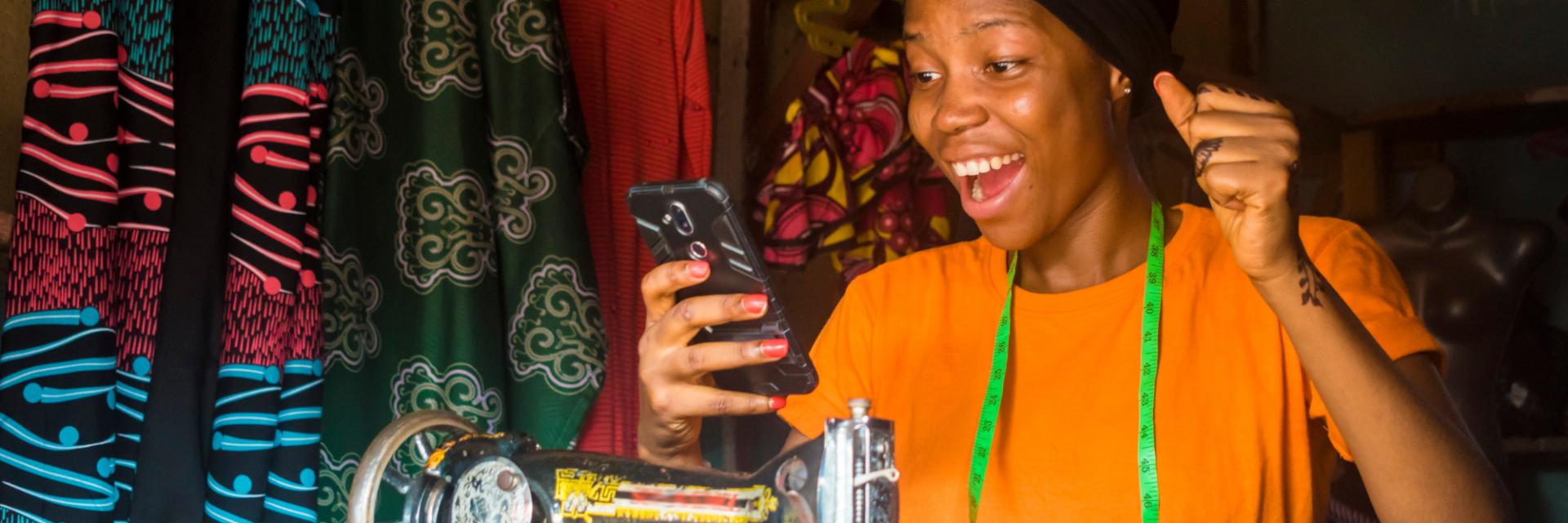Windhoek, Namibia, 22 November 2022 - The United Nations Economic Commission for Africa (ECA), in collaboration with Namibia’s Ministry of Industrialisation and Trade (MIT), facilitated an information sharing and capacity building event on the African Continental Free Trade Agreement (AfCFTA) and the Women and Youth in Trade Protocol, which was held at Windhoek Country Club Resorts.
The session was organized as a follow-up to the launch of Namibia’s National AfCFTA Implementation Strategy and Action Plan for 2022-2027, which was held on Monday 21 November 2022 at the same venue.
Opening the session, MIT’s Deputy Executive Director for International Trade and Commerce, Ms. Ndiitah Nghipondoka-Robiati, said at a time when Namibia and the African continent are working towards greater integration, the information sharing and capacity building event will help participants – mainly women and youth entrepreneurs, and current and potential exporters – to gain an in-depth understanding of the opportunities offered by the AfCFTA Agreement and how businesses can seize these opportunities. Over 100 participants attended the event.
On his part, Mr. Melaku Desta, Coordinator ECA’s African Trade Policy Centre (ATPC), speaking on behalf of the ECA, highlighted the trade-related work being done by ATPC and the ECA at large, which he described as a common resource for the Continent. Mr Desta also described the major benefits projected to come out of AfCFTA implementation in terms of improved intra-African trade, industrialisation, poverty reduction, and increased welfare. Mr Desta stressed that, according to ECA research, “intra-African trade in critical industries, including agri-food, services, and manufacturing, are all expected to increase by nearly 40% in 2045, compared to the situation without the AfCFTA.” Moreover, African GDP is projected to grow while at the same time the poverty head count is projected to decline in virtually all the AfCFTA-State Parties, albeit to varying degrees. Finally, speaking of the future AfCFTA protocol on women and youth in trade, Mr Desta cautioned against the temptation to think that we are here thinking of a small, fringe group in society; it is not. According to Mr Desta, some 70% of Africa’s population are below 30 years of age. When you add women to this figure, the new protocol is in fact about the interests of over 80% oof the African population. We must challenge the assumptions and do better, the ATPC Coordinator added. Finally, Mr. Desta indicated that this is the first time that a stand-alone Protocol on Women and Youth in Trade is being anywhere in the world, which has its own challenges but also opportunities.
Mr. Batanai Chikwene, ECA Economic Affairs Officer updated participants on the status of AfCFTA negotiations and implementation and spoke about having women and youth on top of the agenda as women and youth, who represent more than 80 percent of the African population, are often missing at the negotiating table. He said, there is need to negotiate trade protocols and instruments that can defend women against unfair trade.
Jacquiline Pimer, a Trade Expert with ECA briefed the meeting and gave background on the AfCFTA as an African Union flagship policy designed to promote intra-African trade as tool for the economic transformation of the Continent. She told participants that the AfCFTA “aims to create a single continental market for goods and services, expanded intra-African trade and, in turn, improved terms of global trade.
Presentations were followed by a breakaway discussion session in which participants were tasked to discuss and provide insights on the challenges faced by various MSMEs in cross border trade. Participants also shared their understanding on how trade agreements help in overcoming barriers. Lastly, participants also evaluated gender-related commitments included in the AfCFTA, which they found useful to overcome entrenched biases against women.
Furthermore, participants noted that possible provisions for inclusion in the gender protocol that can be helpful to businesses to operate, expand and take advantage of opportunities offered by intra-Africa trade include commitments to:
-
Increase access to education, skills development and training on business skills;
-
Increase access to market opportunities nationally, regionally and internationally;
-
increase access to digital skills, digital learning and e-commerce opportunities;
-
increase access to information on tariff and non-tariff barriers and on market opportunities;
-
simplify access to finance and trade finance instruments;
-
enhance access to health services, health insurance and physical safety against conflicts and violence;
-
improve conditions of employment, address wage gaps between men and women, and eliminate discrimination at work; and
-
use industrial policy to selectively protect or support infant industries.
Finally, the participants also stressed the need for follow-up in the form of training sessions and public sensitization events in order to ensure that AfCFTA Implementation Strategy just launched would achieve its lofty goals.
Issued by:
Corporate Communications subdivision in the MIT
and UN Economic Commission for Africa (ECA).
Enquiries : Anna.Salkeus@mit.gov.na; lavender.degre@un.org

